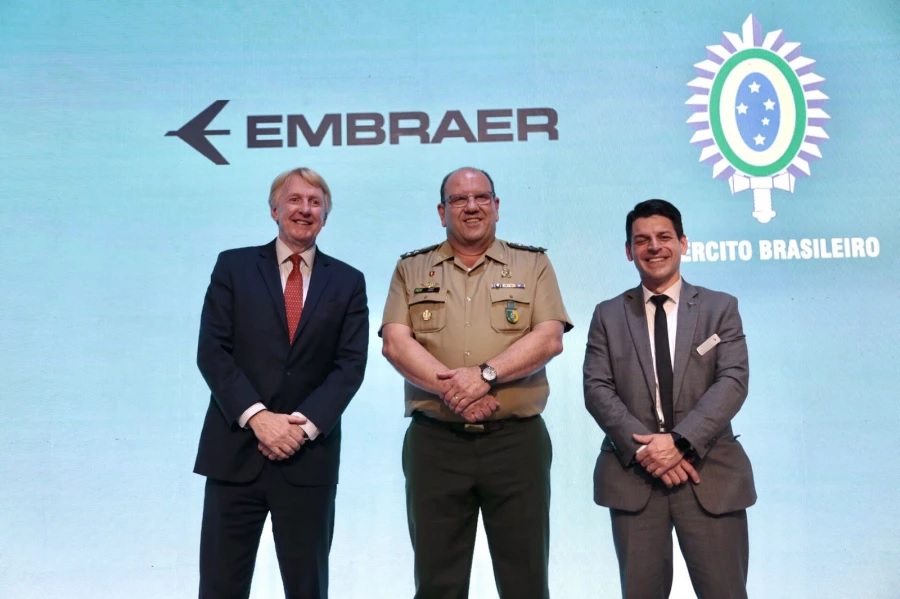RIO DE JANEIRO, BRAZIL – Embraer and the Brazilian Army have signed a contract to develop and deploy the second phase of the Integrated Border Surveillance System (Sisfron). The announcement was made during the recent edition of the International Air and Space Fair (Fidae), from April 5 to 10, in Santiago, Chile.
Sisfron, one of the largest border surveillance projects currently underway internationally, aims to protect the borders linking Brazil with ten neighbors along 16,886 kilometers.
“We are very pleased to celebrate the contract for phase two of the project with Embraer, continuing the successful partnership, with relevant results already proven with the implementation of the pilot phase, complementing the operational capabilities in the Western Military Command,” said the Chief of the Army’s Science and Technology Department, General Guido Amin Naves.

Amin Naves highlighted the “highly complex and strategic” nature of the project, which will enable the Brazilian Army to have the capacity to carry out its mission, in addition to strengthening the actions of other government entities in the border area.
COMMAND AND CONTROL
Sisfron deploys a detection and command and control structure in support of operational employment, acting in an integrated manner, whose purpose is to reinforce the presence and capacity for surveillance and action of the State in the land border area, strengthening the actions of government entities with responsibilities in the area.
“The signing of the contract for the second phase of Sisfron represents an important recognition of the investments and work developed by Embraer in the deployment of the pilot phase, leveraging the company’s core competencies applied to land systems. We are confident that the continuity of the deployment with the next phase will allow us to maintain and expand our expertise and critical technologies for surveillance and control of Brazil’s borders,” said Jackson Schneider, the president and CEO of Embraer Defense & Security.
The implementation of the program has been contributing to the increase of technological capacity, autonomy, and sustainability of the defense industrial base, with the acquisition of high value-added items and the diversification of the national export agenda, thus contributing to the generation of jobs and income in the technology and infrastructure sectors.

